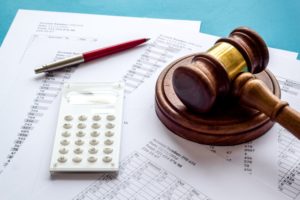
If you feel that you do not have an option except to file for bankruptcy, you will need to understand the steps to take during this process. The first thing you need to do is determine which type of bankruptcy will work best for you and prepare the necessary documents. While navigating the bankruptcy process will differ somewhat depending on which type you file, the initial petition and filing will likely look very similar.
You will need to provide your financial documents to the courts, as well. The process will then likely continue with a creditor’s meeting and various hearings while the court reviews your petition. Hiring an attorney from our firm can help you navigate the steps for filing personal bankruptcy in North Carolina and avoid any potential complications.
Understanding Your Options for Personal Bankruptcy in North Carolina
There are several options for filing bankruptcy as an individual or family in North Carolina. This includes:
- Chapter 7
- Chapter 11 reorganization bankruptcy
- Chapter 12 for family farmers
- Chapter 13
You may want to discuss the options that best fit your needs with a bankruptcy attorney from our North Carolina law firm. We explore each of these options a bit further below.
Chapter 7
Chapter 7 bankruptcy is the most commonly filed type for individuals and couples. It liquidates your non-exempt assets and discharges your debts. Most people can retain most – if not all – of their assets through this process.
Chapter 11
Chapter 11 is most commonly used by companies who require a more in-depth restructuring and reorganization than Chapter 13 offers. However, it is available to qualifying individuals, as well.
Chapter 12
Chapter 12 bankruptcy helps family farmers reorganize their assets and create a repayment plan while retaining their personal property, farmland, tools, and other business assets.
Chapter 13
Many individuals considering bankruptcy compare Chapter 13 and Chapter 7. Chapter 13 may be the best option for those with non-exempt assets they do not want to lose during Chapter 7 bankruptcy. This type of petition creates a payment plan for you and a budget you will need to follow until you complete the program.
How to Petition for Bankruptcy in North Carolina
You will need to complete the Voluntary Petition for Individuals Filing for Bankruptcy provided by the U.S. Courts. This petition is, at its most basic, a long application for bankruptcy.
You will need to provide a wealth of information to the courts, as well as many financial documents. This could take a while to compile and complete. Some information required includes:
- Your name
- Any previous names, such as your maiden name
- Any business name or DBA
- Your home address and previous home addresses
- Whether you have a previous bankruptcy
- Whether you have anyone else – such as a spouse or business partner – also filing
- Whether you rent or own, and if you are current on payments
- If you own your own business or are a sole proprietor
- A list of your debts and assets, including exempt and non-exempt debts
- If you have non-exempt property that your bankruptcy trustee will need to sell
- The number of creditors you have
- The amount of debt you owe each creditor
- Your monthly income and expenses
Once you complete and submit the petition, the court will take over. Depending on the type of filing, the judge will evaluate:
- Whether you can erase debt and keep property; or
- How you can afford to reorganize your debt and pay your creditors over time.
Personal Injury Lawyer Near Me 828.286.3866
What Happens with My Debts During the Bankruptcy Proceedings?
After you file your bankruptcy petition, the court will automatically place a stay on your accounts. This should stop creditors from calling you or trying to collect on your debts. They will need the court’s permission before moving forward with their collections, which they may receive following a meeting of creditors that will occur later on.
The court will also appoint a trustee to oversee and administer your bankruptcy following your initial filing. The trustee will then fill you in on what to do next. This will likely include providing documents to support your petition and working with them to learn more about your debts and assets.
A Bankruptcy Attorney Will Guide You Through the Process
Not only will a lawyer from our team help you decide the best type of bankruptcy for your family, but we will also help you:
- Prepare and file your petition
- Gather necessary documents
- Answer questions about your debts, assets, or the process
- Help you understand your best options for protecting assets
- Represent you to the trustee, creditors, and others
Our bankruptcy attorneys understand the ins and outs of North Carolina law, as well as the federal bankruptcy laws. Your lawyer will work with you to meet your goals, such as protecting your vehicle or keeping your home.
Reach Out to Farmer & Morris Law, PLLC, About Your Bankruptcy Today
At Farmer & Morris Law, PLLC, our team can help you understand if bankruptcy is the best choice for you and your family. When you hire us to represent you, we can weigh your options and provide answers to the questions you have about the process of filing bankruptcy.
We serve clients throughout North Carolina, including Rutherfordton, Morganton, and Shelby. Call (828) 286-3866 now to learn more about our services and how we may be able to help you through this challenging and stressful time.









